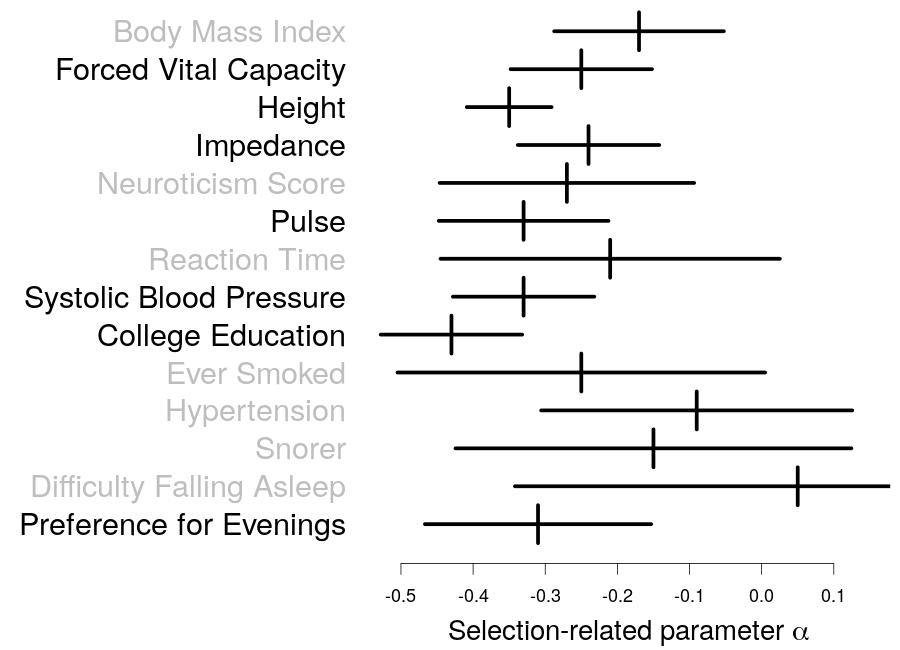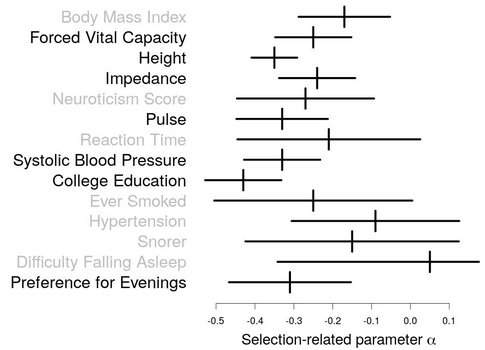Novel tool developed to improve our understanding of genetic factors
AIAS Fellow Doug Speed, in collaboration with David Balding and John Holmes (University of Melbourne), has developed a new tool that improves our understanding of the genetic factors underlying complex traits. Details of the tool have been published this week in the journal Nature Genetics.

The human genome contains millions of genetic variants. These genetic variants influence a wide range of complex traits in humans. For example, they determine how likely we are to develop psychiatric traits such as schizophrenia, autoimmune traits such as Crohn's Disease, or cardiovascular traits such as heart disease.
When we analyze genetic data, it is often necessary to specify a "heritability model", which is a model that describes in advance how much we think each genetic variant will contribute, for instance how much each variant is likely to affect our risk of developing schizophrenia, Crohn’s Disease, heart disease, etc. It turns out that for many analyses, the choice of heritability model is very important. Consequently, if we change the heritability model, it substantially changes the results of the analysis. In recent years, many different heritability models have been proposed, but until now, there has been no way to decide which of these is the best model to use.
Novel tool for evaluating and improving heritability models
In a research article published in the journal Nature Genetics this week, AIAS Fellow Doug Speed and collaborators David Balding and John Holmes from the University of Melbourne present a tool for evaluating and improving heritability models. Initially, this tool is used to determine which existing heritability model is best, then to create a new model that is more realistic than any previously proposed models. Finally, this new heritability model is used to improve our understanding of 31 complex traits; for example, to quantify how much different types of genetic variants influence different traits, and to measure the impact of natural selection.
"The new tool not only improves our understanding of complex traits now, but will also enable us to more efficiently analyze future data,” Doug Speed explains. It will increase our knowledge of which genetic variants cause different diseases, which in turn will speed up the development of personalized treatment and medication for patients suffering from these diseases.
With this in mind, Doug Speed has integrated the new tool into his software package LDAK (www.ldak.org), so that it is freely available for other researchers to apply to their own data.

Figure: As humans have evolved, those who possess beneficial traits (e.g., are stronger or more intelligent) have been more likely to reproduce, and therefore their genes are more likely to be passed to future generations. This phenomenon is referred to as natural selection. One way to measure the impact of selection is via the parameter ‘alpha’; lower alpha implies more selection. The above figure reports estimates of alpha for 14 complex traits, obtained using Doug Speed's new tool. We see strongest evidence for selection for height (often considered a proxy for strength) and college education (a proxy for intelligence).
For more details, see the scientific article
'Evaluating and improving heritability models using summary statistics' by Doug Speed, John Holmes and David J Balding in: Nature Genetics, 23 March 2020
https://www.nature.com/articles/s41588-020-0600-y
DOI no: 10.1038/s41588-020-0600-y
Contact
Doug Speed, AIAS Fellow, Assistant Professor
Phone: +45 8715 3262
doug@aias.au.dk
Aarhus Institute of Advanced Studies (AIAS) and
Bioinformatics Research Centre (BiRC)
Aarhus University
Denmark
